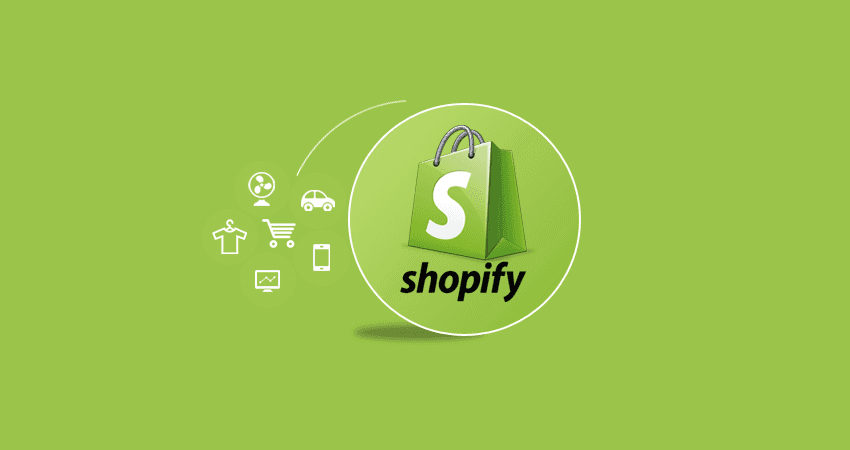In 2024, the world of e-commerce continues to evolve, and WordPress users are on the lookout for the best tools to power their online stores. One of the most popular e-commerce solutions for WordPress has been WooCommerce, but it’s not the only option available. In this article, we’ll explore a range of WooCommerce alternatives for WordPress users, each offering unique features and capabilities. Choosing the right e-commerce platform is a crucial decision, as it can significantly impact the success of your online business. So, let’s dive in and discover the top e-commerce platforms for WordPress in 2024.
Shopify

Source: aliceinfoweb.com
Shopify is a well-established and user-friendly e-commerce platform that seamlessly integrates with WordPress. It’s renowned for its simplicity, making it an excellent choice for beginners. With a vast selection of customizable templates and a user-friendly drag-and-drop editor, Shopify empowers users to create stunning online stores without any coding knowledge. Moreover, it boasts excellent scalability, ensuring that your store can grow as your business expands. Shopify’s unique selling point lies in its app store, offering a plethora of add-ons to enhance your store’s functionality, from marketing to inventory management.
BigCommerce
BigCommerce is another robust alternative for WordPress e-commerce and one of the amazing WordPress alternatives. It stands out for its flexibility and extensive integration options. BigCommerce offers a feature-rich environment suitable for businesses of all sizes. Its key features include multi-channel selling, comprehensive SEO tools, and a wide range of payment gateways. If you’re looking for a platform that combines power with ease of use, BigCommerce might be your best bet.
Wix

Source: wix.com
Wix is renowned for its user-friendly website builder, making it an attractive choice for WordPress users. It offers a seamless e-commerce experience with features like secure payment processing, customizable storefronts, and built-in marketing tools. However, it’s essential to note that Wix’s e-commerce capabilities might not be as extensive as some other platforms, making it more suitable for smaller online stores.
Magento
For those who require a robust and scalable e-commerce solution, Magento is a compelling choice. While it’s known for its complexity and steep learning curve, Magento shines when it comes to handling large-scale e-commerce operations. It offers advanced features such as multi-store management, powerful SEO capabilities, and an extensive range of customization options. However, Magento does require a higher level of technical expertise to set up and maintain.
Ecwid

Source: ecwid.com
Ecwid presents itself as a lightweight yet powerful e-commerce solution that integrates seamlessly with WordPress websites. It’s an excellent choice for small businesses and startups looking to quickly set up an online store. Ecwid offers essential features like product catalog management, secure checkout, and a mobile-responsive design. Its simplicity and ease of use make it an attractive option for those new to e-commerce.
Squarespace
Squarespace is widely recognized for its stunning website templates that effortlessly blend aesthetics and functionality. Beyond its reputation as a website builder, it extends its capabilities to e-commerce, offering users a visually captivating platform to showcase and sell their products online. Squarespace’s design options are not only visually appealing but also incredibly user-friendly, enabling you to craft a beautiful online store that aligns with your brand’s identity. However, it’s essential to consider that Squarespace, while impressive in many aspects, may come with certain limitations when compared to dedicated e-commerce platforms. These limitations often manifest in terms of advanced features and scalability.
OpenCart

Source: geekflare.com
For users seeking complete control over their online store’s design and functionality, OpenCart stands out as an open-source e-commerce platform with a wealth of customization options. It empowers you to tailor every aspect of your e-commerce site to meet your specific needs and preferences. OpenCart’s strength lies in its supportive community and a vast selection of extensions, allowing you to expand your store’s functionality seamlessly. However, it’s crucial to be aware that OpenCart may demand a more hands-on approach when it comes to management and configuration, especially in comparison to user-friendly platforms like Shopify.
PrestaShop
PrestaShop emerges as another open-source contender well-suited for businesses eyeing rapid expansion. It offers a comprehensive suite of features, including multi-store management capabilities that enable you to operate multiple online stores from a single admin interface. Additionally, PrestaShop facilitates international selling with robust multi-language and currency support, making it an attractive option for global ambitions. Nevertheless, it’s worth noting that the initial setup of PrestaShop may present some challenges, particularly for users with limited technical expertise. Therefore, careful consideration of your team’s technical abilities is essential when opting for PrestaShop as your e-commerce platform.
WooCommerce (Self-hosted)

Source: zapier.com
It’s worth revisiting WooCommerce, especially for those who are already familiar with WordPress. WooCommerce, when self-hosted, offers complete control over your online store. It integrates seamlessly with WordPress, allowing you to leverage the familiarity of the platform. If you’re comfortable with WordPress and want to maintain full ownership of your e-commerce site, WooCommerce remains a viable choice.
Considerations for Choosing
Choosing the right e-commerce platform requires careful consideration of several factors. These include:
Budget: Determine your budget and choose a platform that aligns with your financial resources. Consider not only the initial setup costs but also ongoing fees.
Technical Skills: Assess your technical expertise. Some platforms, like Magento, require advanced technical knowledge, while others, like Shopify, are more user-friendly.
Scalability: Think about your business’s growth potential. Select a platform that can scale with your needs.
Business Goals: Identify your specific business goals and ensure that the chosen platform supports them. For instance, if international expansion is on the horizon, look for platforms with robust multi-language and currency support.
Conclusion
In 2024, WordPress users have a plethora of e-commerce platforms to choose from. Each of the alternatives mentioned here offers a unique set of features and capabilities, catering to various business needs. It’s essential to evaluate your own requirements, taking into account factors like budget, technical skills, scalability, and business goals. By aligning your choice with your specific needs, you can set your online store up for success.
Are you ready to take your WordPress e-commerce site to the next level? Explore the mentioned alternatives and embark on your journey to online business success in 2024!







